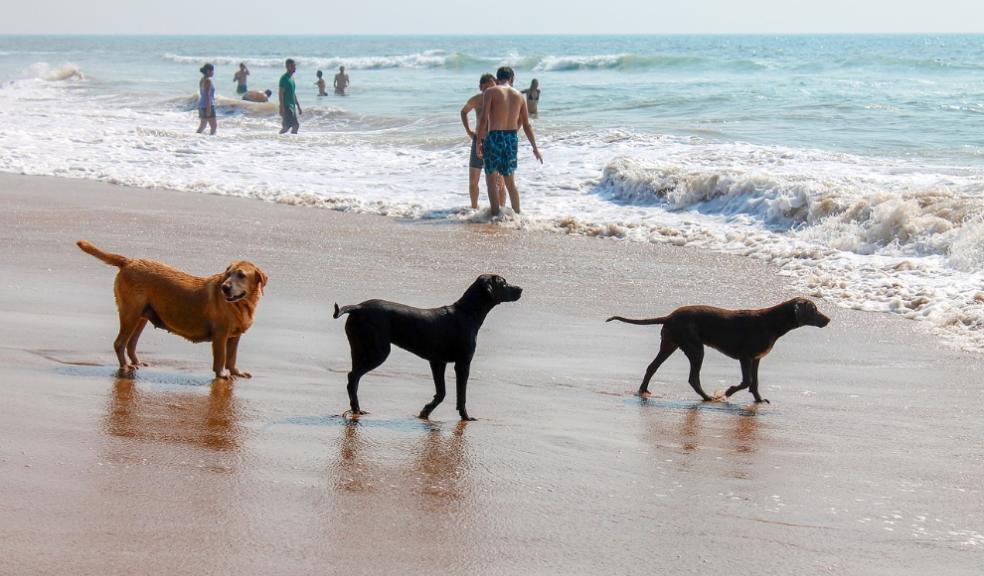
Paws on the Sand, Safety in Hand: Dogs Trust Ilfracombe Shares Beach-Smart Tips for Summer Adventures
With schools across the country breaking up for the summer holidays, millions of families will be flocking to the seaside to make the most of the warm weather. And with a third of all UK households now owning a dog, many families will be choosing to share their beach days with their canine companions.
But with regular reports of dogs being plucked from the waves by rescuers or trapped on coastal ledges, Dogs Trust, the UK's largest dog welfare charity, is sharing tips to help dogs and their owners enjoy the seaside safely together this summer, and reduce the chances of dogs getting into trouble on the beach.
Dogs Trust Ilfracombe's Tips for Seaside Success
- Before you head out to the beach or on a coastal walk, it's essential that you always check the weather and avoid taking your dog out if it's too warm. Dogs can't regulate their body heat like humans, so extra care needs to be taken in warm weather, and it may be safest to stay home. If dogs are too hot and can't reduce their body temperature enough, they may develop heatstroke, which can be fatal. Alarmingly, around 75% of heatstroke cases in dogs are linked to exercise, so even gentle coastal walks should be avoided in warm weather.
- Check that the beach you are visiting allows dogs. Some beaches have a dog-free policy at times of the year, and others have dog-free areas. But don't worry; there are plenty of dog-friendly beaches around the UK so you can enjoy the joy of the beach with your canine friends.
- Keep your dog on a lead if you are close to cliff edges or fast-flowing water. If you are on the beach and your dog has not yet mastered the art of recall, keep it on a lead. Long training leads will give your dog the freedom to explore while helping to keep it safe.
- Before you head out for a walk with your dog on the coast, always check the tide times and plan your trip accordingly to ensure you don't get stranded. Tide times and heights fluctuate throughout the month, so an area that was accessible throughout the day last week may get cut entirely off today.
- Dogs love spending time in the sand, digging and exploring. But before you take your dog on the beach, check that the sand isn't too hot. If you can stand on it comfortably barefoot, then it should be ok for them too.
- Provide shade and fresh drinking water for your dog all day, and pack some tasty treats so you can swap any unsuitable items your pup picks up on the beach for a dog-friendly snack!
- Don't let them get burned. Keep your dog out of direct sunlight where you can. Use pet-safe sun cream on exposed parts of your dog's skin, like the tips of their ears and nose. Ask your vet for more advice if needed.
- Dogs shouldn't drink seawater as it can cause sickness and saltwater poisoning. Also, keep a close eye on them to ensure they're not eating anything they shouldn't, such as seaweed or plastic. Call the local vet if they do.
- After being on the beach, rinse sand and seawater off your dog's coat and paws with tap water to stop it from accumulating and causing irritation.
- If your dog goes into the water, over a cliff edge or gets stuck in mud, don't go after them. Move to a place your dog can reach safely and call them. If you're worried about your dog, call 999 or 112 and ask for the Coastguard.
- Dogs should never be left alone in cars, as even just a few minutes in a hot car can prove fatal. On a 22-degree Celsius day, the temperature inside a vehicle could rise by eleven degrees in just ten minutes, and as dogs can't cool down the same way as humans, the heat can quickly become dangerous for them. If you see a dog in a car in distress, the charity advises that members of the public call 999.
Dom Burke, Canine Behaviour Officer at Dogs Trust, says:
"Many dogs love to visit the beach, with the sea and the sand providing them lots of enrichment and fun. However, dogs can get into trouble on trips to the coast, so it's essential to take some basic steps to keep them safe, including keeping them on their leads near cliff tops, ensuring they have access to shade and fresh water and making sure the sand is not too hot for them to walk on.
"But keeping our dogs safe at the coast starts before you leave home. Always check the weather forecast; if it's too warm, stay home. Heat stroke can make dogs poorly and sometimes can prove fatal."







